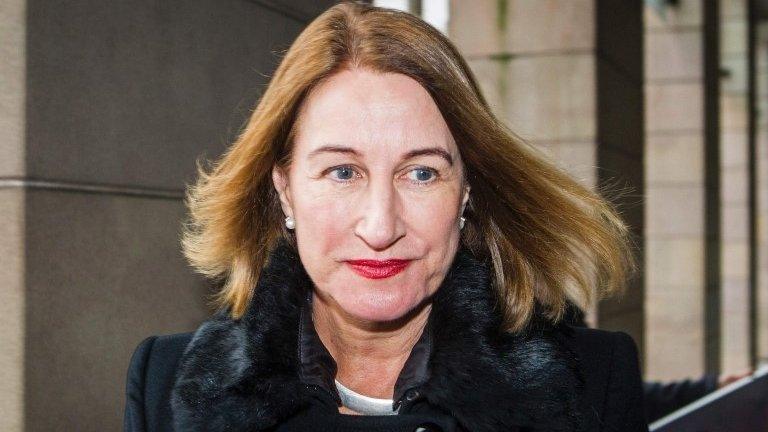Abuse inquiry criticised by ex-chairwoman Lowell Goddard
- Published
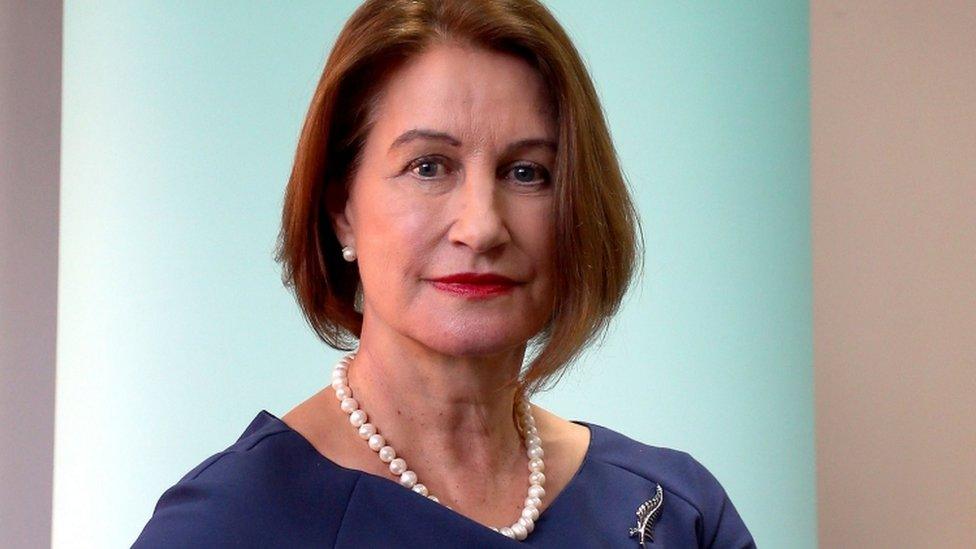
Dame Lowell Goddard, who resigned last month, said the inquiry should focus less on the past
The independent inquiry into child sex abuse is too big, bureaucratic and lacking in adequate systems, its former chairwoman has said.
Dame Lowell Goddard, who resigned last month, said in a memo to MPs, external that the inquiry needed overhauling.
She said the inquiry should focus less on the past and more on current standards of child protection.
New chairwoman Alexis Jay said its terms of reference would remain but an internal review of it would be held.
Last month, Dame Lowell became the third chief to quit the Independent Inquiry into Child Sexual Abuse (IICSA), external, which was set up to investigate allegations made against local authorities, religious organisations, the armed forces and public and private institutions in England and Wales, as well as people in the public eye.
The inquiry was set up after a string of scandals involving celebrities such as BBC DJ Jimmy Savile, who since his death in 2011 has been exposed as one of the UK's most prolific sexual predators, and the targeting of vulnerable children by organised gangs in towns such as Rotherham, Oxford and Rochdale.
The spotlight also fell on sexual assaults carried out in schools, children's homes and at NHS sites.
'Inherent problem'
The inquiry was then launched in 2014 and it has announced 13 initial investigations, which include inquiries into the allegations of abuse by people of prominence.
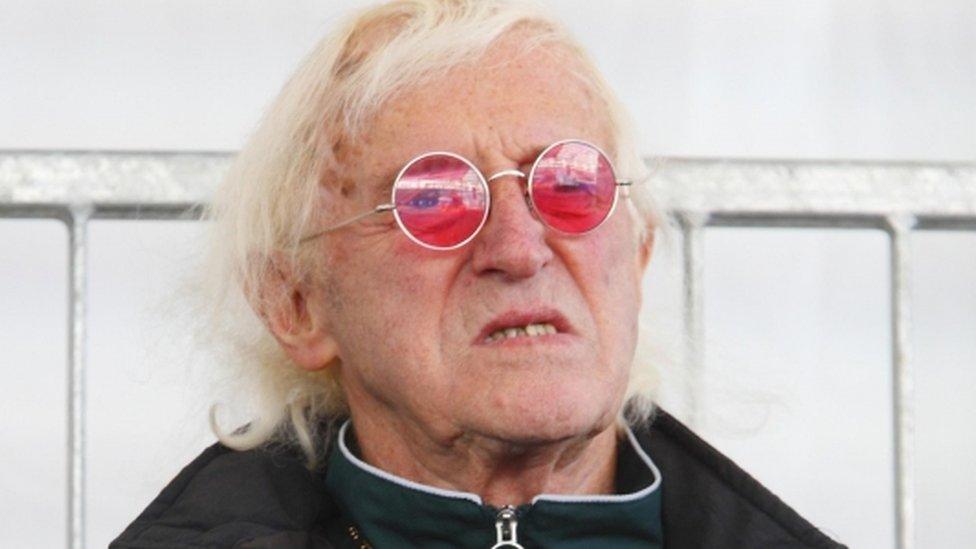
Hundreds of people came forward to say Jimmy Savile had abused them as children
In her memo to the Home Affairs Select Committee, Dame Lowell said she had stepped down in order to challenge the way the probe was running.
There was "an inherent problem in the sheer scale and size of the inquiry", she said - adding that its budget did not match.
"Its boundless compass, including, as it does, every state and non-state institution, as well as relevant institutional contexts, coupled with the absence of any built-in time parameters, does not fit comfortably or practically within the single inquiry model."
She said there should be a complete review, "with a view to remodelling it and recalibrating its emphasis more towards current events and thus focusing major attention on the present and future protection of children".
Dame Lowell also said:
A computer system for handling evidence received by the inquiry had been delayed, but the BBC has been told there have been disagreements about its specification
The inquiry was not able to find a venue for its first hearings contributing to a decision this summer to postpone them until February next year. Inquiry officials said they also ordered a delay to avoid upsetting ongoing investigations by the police and Independent Police Complaints Commission
A decision to staff the inquiry with civil servants has created problems, impeding the inquiry's progress
Inquiry sources have told the BBC she lost the confidence of senior insiders.
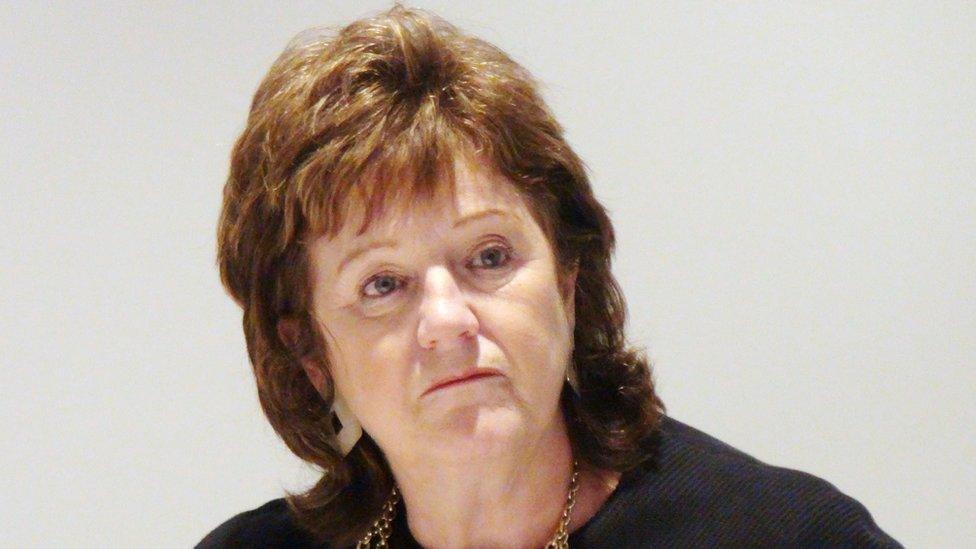
Inquiry chairwoman Alexis Jay said the panel would not be seeking any revision of the inquiry's terms of reference
'Different approaches'
However, Prof Jay said the panel would not be seeking any revision of the inquiry's terms of reference or introducing any new restrictions on its scope.
"To ensure that the inquiry can meet the challenges it faces, I have already initiated a wide-ranging internal review of the inquiry's ways of working," she said.
"We are currently looking at different approaches to evaluating the information we receive."
But Lord Macdonald of River Glaven QC, who was director of public prosecutions from 2003 to 2008, said the probe's "overwhelming focus on the past" was "ballooning out of control" and called for its terms of reference to be rewritten.
Peter Saunders, founder of the charity National Association for People Abused in Childhood and a member of the victims' advisory panel for the inquiry, said it remained the "best hope" despite its scale.
The prime minister's official spokeswoman said the government believed the inquiry was "absolutely vital and we remain committed to doing it".
A spokeswoman for the Home Office said: "We owe it to victims and survivors to confront the appalling reality of how children were let down by the very people who were charged to protect them and to learn from the mistakes of the past."

Abuse inquiry: How we got here
7 July 2014 - government announces independent inquiry into the way public bodies investigated and handled child sex abuse claims. Baroness Butler-Sloss chosen as head
9 July - Baroness Butler-Sloss faces calls to quit because her late brother, Sir Michael Havers, was attorney general in the 1980s at the time of the alleged paedophile scandal. MPs and victims claimed she was too close to the establishment.
14 July - she stands down, saying she is "not the right person" for the job
5 September - Lord Mayor of London Fiona Woolf named the new head of the inquiry
11 October - Mrs Woolf discloses she had five dinners with Lord Brittan from 2008-12. The former home secretary faced questions over his handling of child abuse allegations during his time in office in the 1980s. Before his death in January 2015, Lord Brittan insisted proper procedures had been followed
22 October - abuse victim launches legal challenge against Mrs Woolf leading the inquiry, amid growing calls for her resignation
31 October - victims' groups tell government officials they are "unanimous" Mrs Woolf should quit. She steps down later that day
4 February 2015 - Justice Lowell Goddard, a serving judge of the High Court of New Zealand, announced as the new head of the inquiry
November - inquiry begins hearing directly from victims and survivors
4 August 2016 - Dame Lowell writes to Home Secretary Amber Rudd to resign from her post
11 August 2016 - Prof Alexis Jay announced as new head of the inquiry

- Published6 October 2020
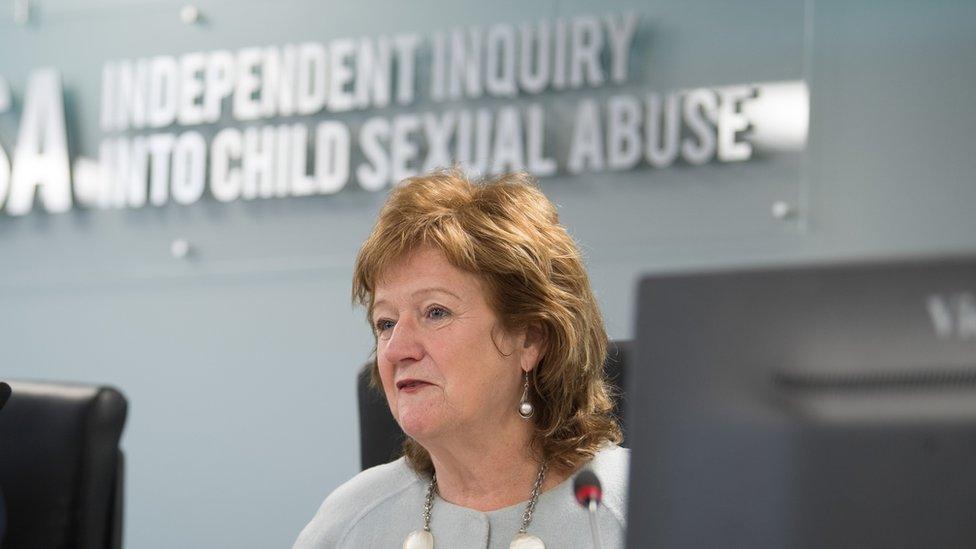
- Published9 August 2016
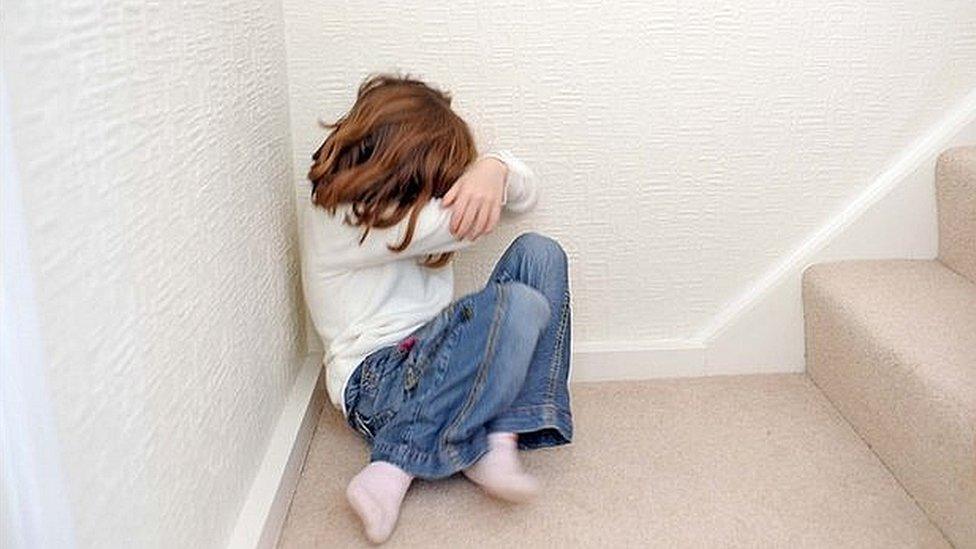
- Published11 August 2016
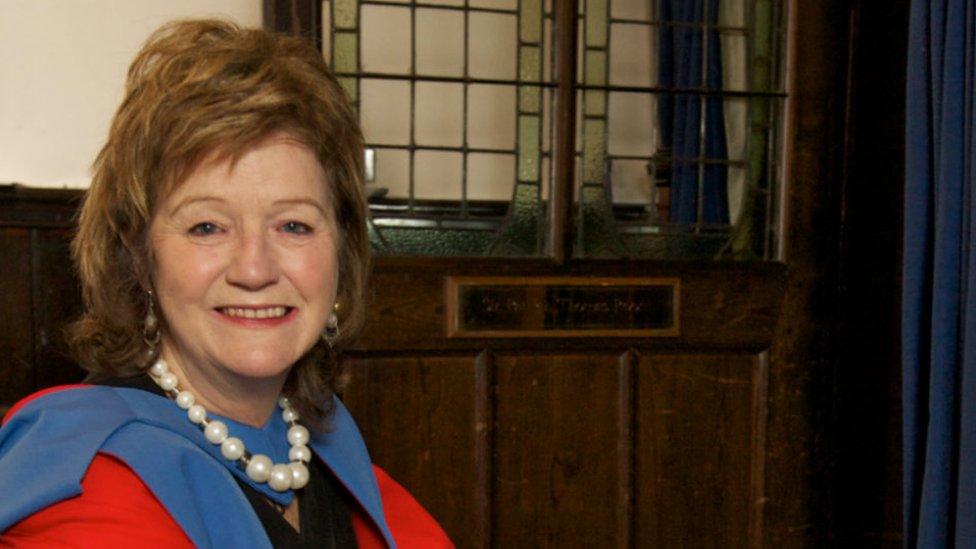
- Published5 August 2016
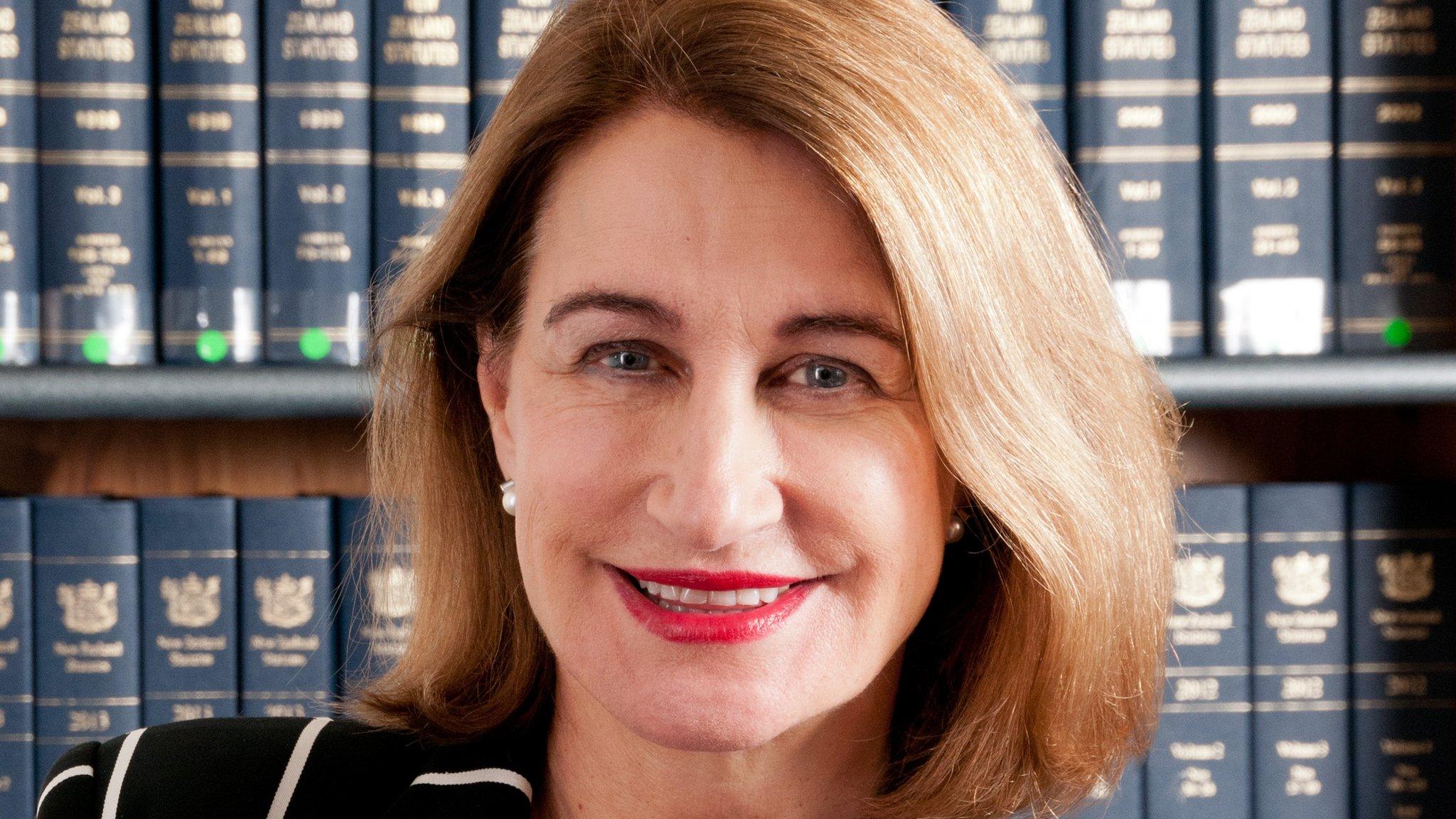
- Published5 August 2016
